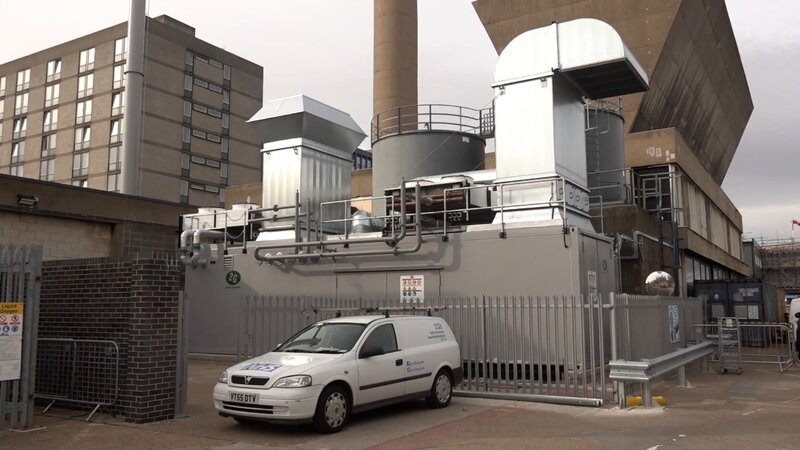Das Hull Hospital ist bereit für eine Kohlendioxid freie Zukunft
Hull NHS Trust installierte zwei wasserstofffähige KWK-Motoren
Zahlen & Fakten

The main reason the Trust chose 2G Energy was our ability to innovate and provide the suitable technology for their ambitious zero carbon targets, this is because every 2G engine is 100% hydrogen enabled. It is possible to have energy supplied as zero carbon simply by changing the gas input into the system to hydrogen.
“Hydrogen is really the key to all this, it's the key for decarbonizing the gas. For us it's a simple adoption of our natural gas engines, just with a bit more technology added on to it. Effectively injection systems for the hydrogen into the cylinder heads and we can run the engines happily at 100% hydrogen for every engine that we manufacture. So, it’s really a case that you can buy a natural gas engine now and then run it on hydrogen” Martin Kenzie, Sales Manager, 2G Energy Ltd
Within the next 5/6 years the gas grid will start to get higher percentages of hydrogen, the Trust have ensured that they are equipped for this by choosing our 100% enabled CHPs.
Whilst the blends of hydrogen into the gas line are being introduced, the Trust are currently working with 2G to use the process of electrolysis to produce hydrogen. Electrolysis is the process of splitting water into hydrogen and oxygen with the help of electricity. Once hydrogen is produced from electrolysis, our engines can run at 100% hydrogen now, meaning that the Trust can reach their truly zero carbon targets instantly.
“The biggest hurdle for us at the minute is the electrolysing of the gas…If we can overcome that hurdle something we actively want to work in partnership with 2G to how we can come across that problem…not only does it benefit us as a Trust, but it benefits the NHS as a wider establishment” Alex Best, Capital Development Manager, Hull University Teaching Hospital NHS Trust
The production of oxygen made in the process of electrolysis is also very beneficial for hospitals, The Trust are a big user of oxygen particularly the acute site which deals with anything from a road accident to covid patients:
“The fact that we could potentially be able to produce our own oxygen to use on site is a real win for us and it is another added benefit, another cost-saving approach that we can take as a hospital moving forward” Alex Best
The investment also has a huge economic benefit, the infirmary site alone will save the trust an impressive £800,000 a year by generating the electricity on site as opposed to importing it.